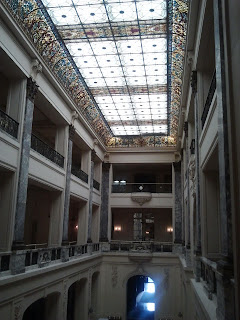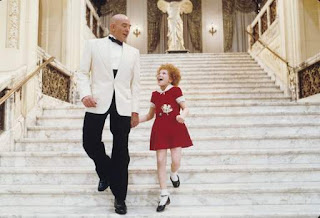Homeschool Success by Susan Higgins
Our first year of homeschooling met with success for both my
husband and I as parents and for our little pupil. She learned to read, which
is always amazing to me; seeing that light turn on as they finally "get
it." She learned how to add and subtract 2-digit numerals which I don't
think I did until the end of second grade. And she's learning how to be curious
and find out what excites her, which is the real goal, I think. As Yeats said,
"Education is not the filling of a pail but the lighting of a fire."
We get a lot of questions on homeschooling whenever we see
our non-homeschooling friends and family. As much as I hate being the
poster-family for homeschooling, I try and remember that their curiosity comes
from a good place and be patient with them. Most people want to know what
"curriculum" we use. I put it in quotes because a lot of people seem
to think that we are required to follow a specific curriculum. In NJ you do
not. NJ requires that all children between 6 and 16 receive a public education
or its equivalent. That's it. If the school system feels that you are not
providing that to your children, they can bring you to court. Once you show
what you are providing your child, in terms of education, the onus is on the
school system to prove it's not equivalent. This has not been done very often,
but it’s enough of a concern that I keep a record of what we’ve covered in a
teacher’s planning calendar.
We are primarily following a classical education format
called a Trivium. It's based on a solid foundation of grammer, logic and
rhetoric. At age 7, this means a good foundation in reading skills, with the
idea that it will open up doors for her to learn about, well about anything she
wants. We also have a strong focus on math and include several hours a week for
history, art, music and sports. Another popular homeschooling style is called
"unschooling," meaning that there is no set instruction. Children
learn as they go about the course of the day or as things interest them.
Writing thank you notes is a lesson in writing, grammar, penmanship and
manners. A trip to the farmer's market can be a math lesson, etc. Another
popular type is called unit-based learning. The child and parents find
something of interest: Egyptian pyramids, the solar system, the rain forest and
use that subject as a spring board for learning math, reading, writing, etc as
they learn about it.
There are many different schools of thought on homeschooling
and from parents I've talked to in-person and online, no one style is perfect for
everyone. Some parents even tailor the style to how the child learns best, not
something they're likely to learn in a public school, with its one-size-fits-all
curriculum. Montessori and Waldorf adherents both have homeschool versions.
There are Christian and other faith-based homeschool philosophies. Also, for
parents who want to, there are distance learning and correspondence curriculum for purchase. I know one family who uses an online school. The kids “meet” with
their teachers online every day.
Lucky for us, there is an abundance of information on
homeschooling out there. Not the case
for anyone who was teaching at home twenty or even ten years ago. And the
internet has made sharing this information easy and much of it free. Some
resources that we’ve used:
Homeschool Your Child for Free, LauraMaery Gold and Joan M.
Zielinski, a comprehensive resource guide for finding free information on the internet,
from curriculum planning to organization help.
www.bbc.co.uk/schools has the entire British schools
curriculum online and I find it much more entertaining and user-friendly than
many American sites. We’re using it this year for Ancient Greek history. It has
games and interactive lessons for kids.







